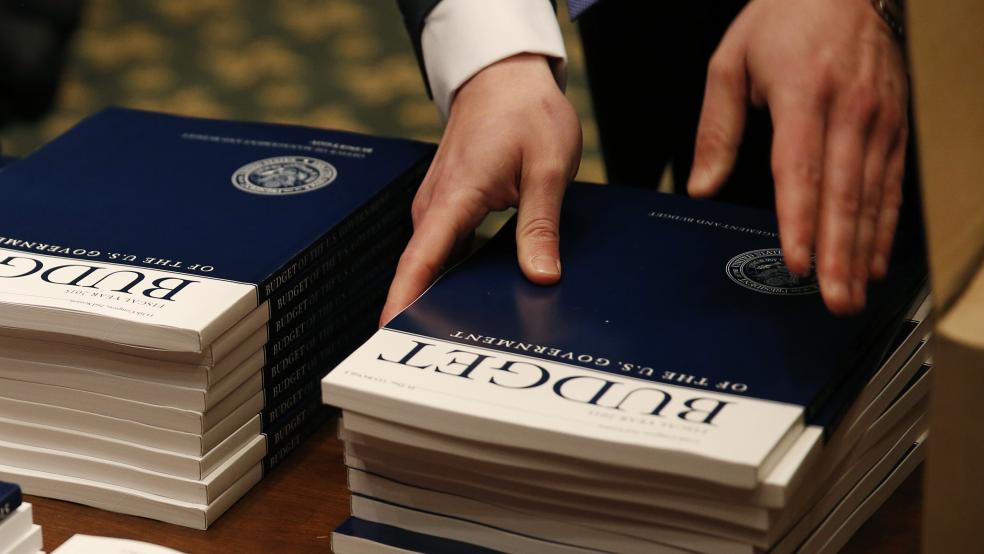Talk of reforming the cumbersome federal budget process is almost certain to prompt yawns and eye-rolling by lawmakers and staff on Capitol Hill – unless, of course, someone with real political clout and stature is making the point.
A small but hearty band of Republican and Democratic government reformists have been pressing for changes in the 40-year-old congressional budget law – including a major shift from a yearly to a biennial process for producing a new budget and tax blue print.
Related: End Beltway Brawls? Try Biennial Budgeting
This week, House Majority Leader Kevin McCarthy (R-CA) told Politico that one of his priorities for the next session of Congress is rethinking – and possibly altering – the ancient congressional budget process.
To his credit, the recently ensconced Majority Leader is trying to take a more global view of how businesses is conducted on Capitol Hill, after years of partisan gridlock and lurches from one budget and debt crisis to another. A budget crisis provoked a 16-day government shutdown a year ago, and it took the herculean efforts of Senate Budget Committee Chair Patty Murray (D-WA) and House Budget Committee Chief Paul Ryan (R-WI) to craft a budget deal last December to avert a default on the U.S. debt.
While nothing can be done for now to mitigate the bitter divisions between President Obama and congressional Republicans, McCarthy contends that it might help to revamp the creaky legislative machinery.
For starters, McCarthy has his sights on a possible realigning and streamlining of the bulky committee system. There are roughly 40 House and Senate standing and special committees – not to mention the scores of subcommittees that oversee the federal bureaucracy and draft spending bills and legislation. Many of these committees and panels have overlapping jurisdictions, but the committee and subcommittee chairmen and ranking members are reluctant or unwilling to give up power.
“Is the committee structure we came up with in 1994, and before that in the ’50s, really what’s best today?” McCarthy said in the interview. “Maybe, but you don’t know. We should audit them. Accountability matters.”
Related: Kevin McCarthy: 10 Things You Didn’t Know About Him
As for the complex and time-consuming annual budget process – beginning with the annual ritual of the president submitting a budget that is instantaneously declared “dead on arrival” on Capitol Hill – McCarthy thinks that writing a budget each year is antiquated. Instead, he is suggesting a shift to a system that has been used successfully by many states – which is to pass a budget in the first year and provide oversight and fine tuning of the spending plan in the second year.
Moreover, he wants to reform the non-partisan Congressional Budget Office so that it studies the impact of legislation over a 20-year period, instead of 10 years as it does now. He told Politico that Congress too often gets “stuck in our subcommittees,” and he wants to “start looking at what we’re doing in the next 50 years.” McCarthy says Washington is frozen because the “structure holds us back.”
“The ideas are great,” McCarthy said, “but what stops the ideas from becoming law? Some of the archaic things we do.” McCarthy, the No. 2 Republican behind House Speaker John Boehner, added with a note of disbelief that “The budget act is the Budget Act of 1974. Does the world look like it did in ’74?”
Three cheers for McCarthy. The legislative and budget process is long overdue for a retooling, as many government experts and watchdog groups have been saying for years. The budget process has become so heavily politicized and convoluted that spending agreements have become the exception, not the rule.
It has been almost two decades since the House and Senate in 1996 beat the Oct. 1 deadline for approving all 13 annual spending bills before the start of the new fiscal year, according to The New York Times. In recent years, the Senate has rarely considered individual appropriations bills at all.
Related: Congressional Odd Couple Finally Strikes a Budget Deal
There have been a few small steps taken over the past few years in the Senate and House to move toward a more modern approach to budgeting. The House Budget Committee early this year quietly endorsed a measure that would shift the budgeting process from an annual to a bi-annual affair.
With McCarthy now seemingly on board, the idea of a biennial budget process might pick up a little steam next year, when the budgeting reform bills are reintroduced in the House and the Senate.
A senior legislative assistant to Rep. Reid Ribble (R-WI), who drafted the legislation overhauling the budget process, said on Friday that the McCarthy interview is “very encouraging news, although with no time left in the current Congress, “we will have to start our process over again” next year. “We do feel good about having the majority leader publicly interested in the topic,” he said.
Related: With McCarthy’s Rise, Tech Sector Gets a Boost
The Committee for a Responsible Federal Budget, a watchdog group pressing for long-term deficit reduction and entitlement reform, praised McCarthy’s call for biennial budgets but cautioned that such an approach would not be “a silver bullet.”
“While changes to the budget process are not a substitute for making the tough political decisions necessary to put the long-term debt on a sustainable path, improvements to the process can produce additional transparency and accountability so that the system works better for policymakers and constituents,” the group said. “Biennial budgeting and longer-term cost analysis can help in this effort. Improving the budget process should be a bipartisan effort, and we are encouraged to see Majority Leader McCarthy putting forward ideas to make the process better.”
Top Reads From the Fiscal Times:





